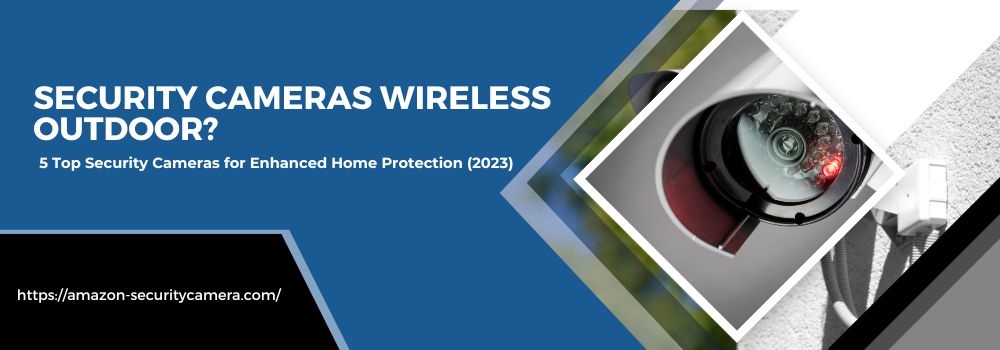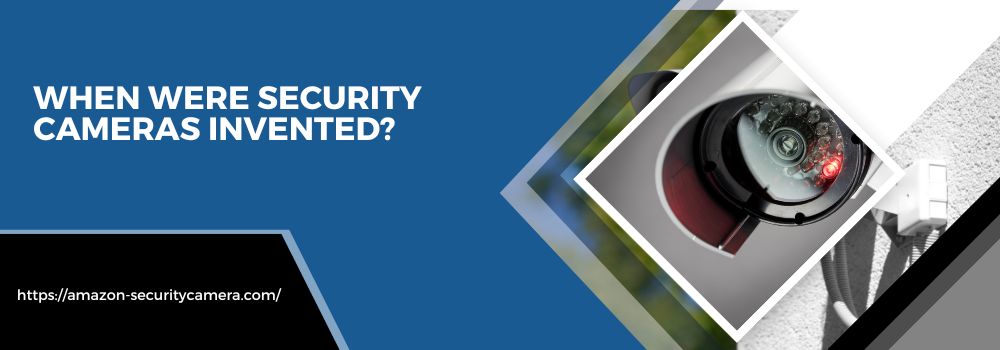Home safety and security is one of the top priorities for homeowners these days, with various devices proving their effectiveness in helping deter crime. Do Home Security Cameras Delete Footage?But with so many new home security options out there, you may be wondering which ones are worth your while. One product that has had a lot of traction lately is the security camera; after all, they’re sophisticated pieces of technology that can provide peace of mind in case of an emergency.
Yes, home security cameras do delete footage after a certain period. The duration before the deletion varies depending on the specific camera model, the settings that you’ve chosen, and the type of storage used. It’s crucial to regularly back up or save any important footage to prevent it from being overwritten or deleted.
In this blog post, we’ll take a deep dive into how to get the most from security cameras and answer this challenging question.
Table of Contents
Understanding Home Security Cameras and Their Functions
Home security cameras are more than just digital eyes on your property. They function as deterrents, evidence collectors, and peace-of-mind providers. However, their capabilities hinge on understanding their features, how they store footage, and the protocols they follow for deleting this valuable data. Let’s delve into the nuances of these technological guardians.
- Continuous Monitoring: Home security cameras provide 24/7 surveillance, capturing and recording all activities within their field of view. This perpetual monitoring can capture suspicious activities or individuals, helping to deter potential burglars or vandals.
- Motion Detection: Many home security cameras come equipped with motion detection features. When activated, these cameras can alert homeowners to any unusual movement within their premises, adding an extra layer of security.
- Record Keeping: These cameras record and store footage over a specified period of time, allowing homeowners to review past events. This can be vital for identifying criminals after a crime has occurred or for providing evidence in legal situations.
- Remote Access: Most modern security cameras offer remote access through smartphone apps or web portals. This allows homeowners to monitor their property in real time, no matter their location.
- Night Vision: Many cameras also include night vision capabilities, using infrared technology to capture clear images even in the dark. This ensures comprehensive security coverage regardless of the time of day.
Different Types of Home Security Cameras and How They Record Footage
Home security cameras come in a variety of styles, each with unique recording capabilities. From covert spy cams to robust outdoor systems, the right choice depends on your specific needs. Join us as we explore these diverse options in detail.
- Dome Cameras: These are ceiling-mounted cameras that provide a 360-degree view, making them perfect for monitoring large spaces. They typically have an inbuilt memory card to record and store footage.
- Bullet Cameras: Named for their sleek, cylindrical shape, these cameras are ideal for long-distance viewing. They often include features like infrared night vision and are usually weather-resistant for outdoor use.
- Wireless Cameras: These cameras offer flexibility in placement due to their lack of wires. They record surveillance footage to a digital video recorder (DVR) or onto cloud storage based on the user’s preference.
- IP Cameras: These cameras record footage digitally rather than on tape. The recordings are then sent over the internet and stored remotely on a network, providing easy access to the footage from anywhere with an internet connection.
- Pan/Tilt/Zoom (PTZ) Cameras: These cameras provide the user with remote control of the camera’s focus, providing a full field of view and the ability to zoom in on specific areas of interest. They store recordings either locally or on cloud storage, depending on the model.
Benefits of a Home Security Camera System
- Deter Crime: A visible security camera system has a significant psychological effect on potential intruders. The mere sight of these devices can deter many would-be criminals, protecting your property and loved ones.
- 24/7 Monitoring: With a home security camera system, you can track and monitor your home anytime and anywhere. Day or night, you are connected and can instantly respond to any unusual activities.
- Evidence Collection: Security cameras record and store footage which can serve as crucial evidence in case of any legal disputes or criminal activities. This footage can significantly assist law enforcement agencies in their investigations.
- Check on Family and Pets: Modern security cameras allow you not only to protect your property from burglars but also to check on your family and pets when you’re away, ensuring their safety and comfort.
- Reduce Home Insurance Costs: Many insurance companies offer discounts to homeowners who install security camera systems. These devices reduce the risk of damage and theft, which can result in lower insurance premiums.
- Enhance Home Automation: Modern security cameras can synchronize with other smart home devices, enhancing your home’s automation. For example, you can set your system to turn on the lights when the camera detects motion at night.
- Peace of Mind: Above all, the primary benefit of a home security camera system is the peace of mind it imparts. Knowing that your home is secure and that you can monitor it anytime provides an unparalleled sense of security.
Do Home Security Cameras Delete Footage Automatically or Manually
The management of footage from home security cameras often depends on the specific model and settings applied. Some systems may be configured to automatically overwrite old footage after a set period, such as 30 or 60 days. This feature is primarily designed to conserve storage space.
Other cameras provide the option for manual deletion of footage. Users can review the recorded videos, save important clips for future reference, and discard the rest. This system offers greater control to homeowners, allowing them to manage their storage effectively.
However, with the advent of cloud storage, many security cameras now offer the flexibility to store footage indefinitely on the cloud. This feature eliminates the concern about deleting valuable evidence inadvertently. Keep in mind, though, that this may come with additional costs for subscription services.
Tips to Retain Your Footage Safely and Securely for the Long Term
- Invest in High-Capacity Storage: To avoid running out of space quickly and losing important footage, consider investing in high-capacity storage solutions. Some security cameras support expandable storage, allowing you to upgrade as needed.
- Utilize Cloud Storage: Many camera systems offer cloud storage options, which can store vast amounts of video footage without physical constraints. This option often comes with the added benefit of being able to access your footage from anywhere.
- Regularly Backup Your Footage: To ensure you don’t lose any important videos, make it a habit to regularly back up your footage. This can be weekly, bi-weekly, or monthly depending on the amount of activity your camera records.
- Save Important Clips Separately: If your camera has recorded something significant, be sure to save that clip separately. It ensures that the clip isn’t accidentally overwritten or deleted.
- Set an Auto-Delete Schedule: Some camera systems offer a feature to auto-delete older footage. Be sure to set this schedule wisely, so you don’t lose footage you may need later.
- Use Motion-Triggered Recording: To conserve storage space, consider setting your camera to record only when it detects motion. This way, you’re not wasting storage on uneventful footage.
- Manage Resolution Settings: Higher-resolution videos take up more storage. If storage is a concern, consider reducing the video quality in settings.
- Encrypt Your Footage: To ensure the privacy and security of your footage, use encryption tools available with your security camera system.
- Regular Maintenance: Regularly check your camera and storage system for any technical issues. Immediate resolution can prevent the loss of footage.
- Understand Your Camera’s Storage Policies: Each security camera brand has its own policies about storage, deletion, and accessibility of footage. Fully understanding these can help you manage your footage better.
Conclusion
In conclusion, understanding how home security cameras handle footage and the potential for deletion is pivotal for effective utilization. By being proactive and regularly backing up your footage, saving paramount clips separately, and judiciously managing resolution settings, you can conserve storage and ensure your videos are accessible when needed.
Furthermore, leveraging features like motion-triggered recording and auto-deletion schedules can be beneficial. Remember, knowledge of your camera’s storage policies and regular maintenance is key. Empower yourself with this insight and make your home a safer space.
Faqs
Q1. How long does the average security camera store?
The storage duration for security camera footage varies significantly depending on the camera type, settings, and storage capacity. On average, most security cameras store footage for 30 to 60 days. However, this can be extended with expandable memory or cloud storage options. It’s essential to refer to your specific camera model’s documentation for precise information.
Q2. How to delete security camera footage?
Deleting security camera footage can typically be done through the device’s accompanying app or software. Firstly, log in to the application and navigate to the video history or library section. Here, you can select the specific footage you want to delete. After selecting, look for the delete or trash icon and confirm your action. Please remember that once deleted, footage cannot be retrieved. However, the process may vary depending on your camera’s make and model, and it’s always best to refer to your device’s user manual for precise instructions.
Q3. Does CCTV footage get deleted automatically?
Yes, CCTV footage does get deleted automatically after a certain period due to storage limitations. The duration before deletion varies depending on the specific security system in use and its settings. Some systems overwrite old footage with new footage once storage is full, while others may use cloud storage to keep footage for longer periods. It’s crucial to understand your system’s storage capabilities and settings to ensure important footage isn’t lost.
Q4. How often do security cameras reset?
The security camera’s reset frequency largely depends on the model and the settings chosen by the user. Some cameras are set to reset automatically every few days, while others may only reset during a power outage or when manually triggered by the user. In general, resetting a camera can help clear any minor glitches or issues and allow it to function more efficiently. However, it’s best to refer to your specific camera’s user manual for the most accurate information.
Q5. Can police recover deleted CCTV footage?
In most cases, police may not be able to recover deleted CCTV footage. Once the data is overwritten or deleted from the system, it is typically not retrievable. However, if the footage was uploaded to a cloud storage, there might be a possibility for recovery. Remember, procedures can vary significantly depending on the specific security system and its configuration. Therefore, it is always recommended to save or backup any crucial footage to prevent accidental loss.



